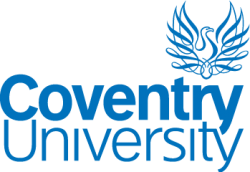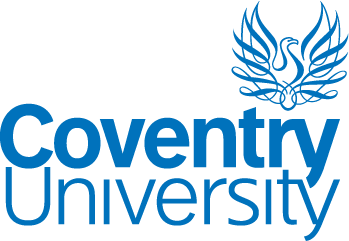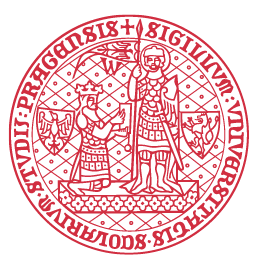
Project Coordinator
Coventry University has roots reaching back as far as 1843. Today it is a forward looking modern University, a provider of high quality education with a focus on quality research.
We are the number 1 Modern UK University (2014 and 2015), hold worthy positions in the influential Guardian (27th), Times and Sunday Times (45th) University Guides and are ranked in the well-respected QS World University rankings. The University has a reputation for excellent teaching and research, business engagement, innovation and entrepreneurship, and employs 3,000 staff, with 24,000 students.
The University offers excellent teaching and state-of-the-art facilities and equipment through programmes that are flexible and taught by leading experts across four faculties in the city of Coventry. Faculties include Faculty of Business and Law, Faculty of Arts and Humanities, Faculty of Environment, Engineering and Computing and The Faculty of Health and Life Sciences. Secondary campuses in London and Scarborough offer a range of specialised courses and the chance to study at a range of levels, designed in ways to suit learners’ lifestyles.
The Faculty of Arts and Humanities is the oldest part of Coventry University, educating some of the world’s leading artists, designers and creative thinkers since 1843. Three Schools (School of Art and Design, School of Humanities, School of Media and Performing Arts) promote and facilitate collaboration and access to specialist resources in response to an increasingly diverse technological and geographical workplace.
Coventry University is well known for being ambitious and innovative, making a significant contribution to work on important global and societal challenges. Coventry’s new research strategy, ‘Excellence with Impact’, builds on this trend and will transform the way research is conducted by applying fresh and original approaches.
Key personnel
 Neil Forbes – male – REACH Co-ordinator. Professor of International History at Coventry University, UK. His research interests and publications lie in the fields of Cultural Heritage (conflict, contested landscapes and the memorialisation of war), the interaction of foreign policy formulation with the practices of multinational enterprise during the interwar years, the processes of financial stabilisation after the First World War, and Anglo-American relations and the rise of the Third Reich. He has played a leading role in several research projects, including a £1m digitisation and creative archiving project in association with the UK’s BT and The National Archives, and has recently acted as Co-ordinator of the EU’s FP7 RICHES project - Renewal, Innovation and Change: Heritage and European Society. He is a member of several professional associations and other bodies.
Neil Forbes – male – REACH Co-ordinator. Professor of International History at Coventry University, UK. His research interests and publications lie in the fields of Cultural Heritage (conflict, contested landscapes and the memorialisation of war), the interaction of foreign policy formulation with the practices of multinational enterprise during the interwar years, the processes of financial stabilisation after the First World War, and Anglo-American relations and the rise of the Third Reich. He has played a leading role in several research projects, including a £1m digitisation and creative archiving project in association with the UK’s BT and The National Archives, and has recently acted as Co-ordinator of the EU’s FP7 RICHES project - Renewal, Innovation and Change: Heritage and European Society. He is a member of several professional associations and other bodies.
 Tim Hammerton – male – is an experienced project manager having most recently held that role for the highly regarded FP7 RICHES and CIP Europeana Space projects, coordinated by Coventry University. He has previously managed European mobility and significant European funded projects, including the redundancy and redeployment contracts when the large MG Rover and Peugeot car factories closed; successfully meeting outcomes, within budget. As a result, he was invited to sit on regional committees such as the West Midlands Regional Redundancy Strategy Group and other key working groups to provide advice on developing effective project management infrastructure. His cultural heritage credentials are demonstrated, as he has had a Coventry located Treasure Trail published, using historical buildings and information as clues, which is now available to the general public.
Tim Hammerton – male – is an experienced project manager having most recently held that role for the highly regarded FP7 RICHES and CIP Europeana Space projects, coordinated by Coventry University. He has previously managed European mobility and significant European funded projects, including the redundancy and redeployment contracts when the large MG Rover and Peugeot car factories closed; successfully meeting outcomes, within budget. As a result, he was invited to sit on regional committees such as the West Midlands Regional Redundancy Strategy Group and other key working groups to provide advice on developing effective project management infrastructure. His cultural heritage credentials are demonstrated, as he has had a Coventry located Treasure Trail published, using historical buildings and information as clues, which is now available to the general public.
 Sarah Whatley – female – is Professor of Dance and Director of the Centre for Dance Research at Coventry University, which includes expertise in gender studies and IP law. Her research focuses on dance and new technologies, intangible cultural heritage, dance analysis and documentation, somatic dance practice and pedagogy, and inclusive dance. She has published widely on these themes and the AHRC, EU, and the Leverhulme and Wellcome Trusts fund her current projects. Those projects include co-ordinating EuropeanaSpace, exploring the creative reuse of digital cultural content. She is also a partner on a H2020 project, WhoLoDancE, exploring smart learning environments for dancers. She is founding editor of the Journal of Dance and Somatic Practices and sits on the editorial boards of several other Journals.
Sarah Whatley – female – is Professor of Dance and Director of the Centre for Dance Research at Coventry University, which includes expertise in gender studies and IP law. Her research focuses on dance and new technologies, intangible cultural heritage, dance analysis and documentation, somatic dance practice and pedagogy, and inclusive dance. She has published widely on these themes and the AHRC, EU, and the Leverhulme and Wellcome Trusts fund her current projects. Those projects include co-ordinating EuropeanaSpace, exploring the creative reuse of digital cultural content. She is also a partner on a H2020 project, WhoLoDancE, exploring smart learning environments for dancers. She is founding editor of the Journal of Dance and Somatic Practices and sits on the editorial boards of several other Journals.
 Silvana Colella – female – is Professor of English at the University of Macerata, in central Italy, and Senior Research Fellow at Coventry University. Her primary scholarly work focuses on nineteenth century British literature and culture. She has published books and articles on women writers, gender and feminist theories, and the interconnections between literature and economic thought. More recently her research interests have expanded to include cultural heritage as an area of critical inquiry. In 2015, she was appointed President of the European Consortium of Humanities Institutes and Centres (ECHIC).
Silvana Colella – female – is Professor of English at the University of Macerata, in central Italy, and Senior Research Fellow at Coventry University. Her primary scholarly work focuses on nineteenth century British literature and culture. She has published books and articles on women writers, gender and feminist theories, and the interconnections between literature and economic thought. More recently her research interests have expanded to include cultural heritage as an area of critical inquiry. In 2015, she was appointed President of the European Consortium of Humanities Institutes and Centres (ECHIC).












